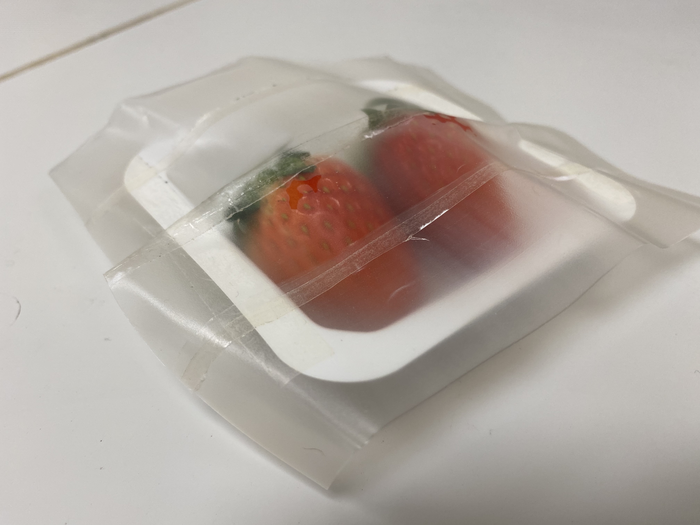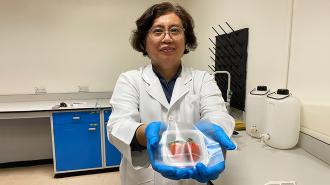A new smart type of food packaging promises to eliminate food poisoning by killing harmful bacteria.
According to scientists, the packaging destroys hazardous bacteria like E.coli, Salmonella, and Listeria, allowing meat, fish, fruit, and vegetables to last longer.
“Food safety and waste have become a major societal challenge of our times with immense public health and economic impact which compromises food security. One of the most efficient ways to enhance food safety and reduce spoilage and waste is to develop efficient, biodegradable non-toxic food packaging materials,” Philip Demokritou of Harvard Chan School, who co-led the work, said in a statement.
Why this matters: Most of our plastic trash comes from packaging — single-use plastic containers, bags, and wrappers that are made from fossil fuels and stick around in the environment for hundreds of years. In fact, the packaging sector is the largest and fastest-growing user of synthetic plastics, making up 40% of plastic use.
“Due to the globalization of food supply and attitude shift towards a healthier lifestyle and environmentally friendly food packaging, there is a need to develop biodegradable, non-toxic and smart/responsive materials to enhance food safety and quality.”
Philip Demokritou
About 146.1 million tons of municipal solid waste ended up in landfills in 2018. The majority was food waste, with plastic waste a close second. Yet despite the environmental concerns, plastic has a lot of benefits — especially with food, because it can help maintain freshness and therefore reduce food waste.
When it comes to the environment, the new biodegradable material promises to deliver by cutting down on plastic waste, without compromising the benefits of plastic food packaging.

“Due to the globalization of food supply and attitude shift towards a healthier lifestyle and environmentally friendly food packaging, there is a need to develop biodegradable, non-toxic and smart/responsive materials to enhance food safety and quality,” Demokritou said.
The stuff it is made from: Demokritou and a team of scientists from Nanyang Technological University in Singapore and the T.H. Chan School of Public Health at Harvard created the transparent packaging from a form of corn protein called zein, starch, and other naturally generated biopolymers.
Then they mixed with a slurry of natural antibacterial chemicals like citric acid and oil from thyme. The end product is biodegradable, water-proof, and it kills the harmful bugs that can spoil food and cause food poisoning.
What’s more, like plastic, the food packaging can extend the shelf-life of fresh fruit by a few days, which can make the difference between produce being eaten or thrown out.
Taking to the test: This food packaging almost seems to have a mind of its own. In lab studies, published in ACS Applied Materials & Interfaces, the team found that the food wrap responded to environmental cues by releasing chemicals to help maintain freshness.
For example, the material released the required small amounts of antimicrobial chemicals only when presented with an increase in humidity or bacteria. Releasing the chemicals in small doses ensured that the packaging could be reused again and again for a more extended period.
Keepin’ it fresh: The new food packaging could be used for a wide range of items, including ready-to-eat meals, raw meat (a major source of food poisoning), fruits, and vegetables, because the chemicals target bacteria that develop on the packaging and food. One study showed that strawberries wrapped in the smart packaging could stay fresh and mold-free for seven days, compared to only four days in the typical plastic carton.
“Vegetables are a source of wastage because even if they are refrigerated, they will continue to respire, leading to spoilage after a week or two,” Chan told Good News Network, “With the antimicrobial packaging, there is a chance to extend their shelf life.”
With the help of an industrial partner, the team hopes to scale up the technology and commercialize it within a few years.
We’d love to hear from you! If you have a comment about this article or if you have a tip for a future Freethink story, please email us at [email protected].






